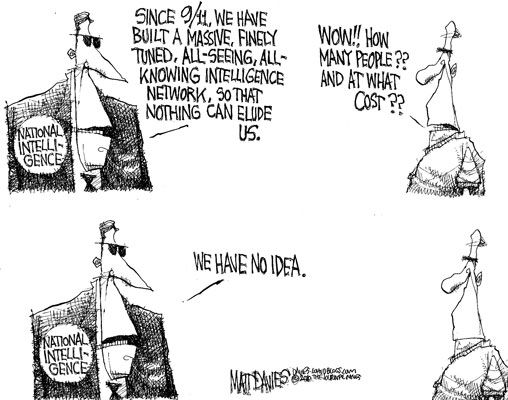“Punting the Pundits“ is an Open Thread. It is a selection of editorials and opinions from around the news medium and the internet blogs. The intent is to provide a forum for your reactions and opinions, not just to the opinions presented, but to what ever you find important.

Eugene Robinson: Momentum becomes substitute for logic in Afghan war
In Afghanistan, momentum has become a substitute for logic. We’re not fighting because we have a clear set of achievable goals. We’re at war, apparently, because we’re at war.
No other conclusion can be drawn from the circular, contradictory, confusing statements that the war’s commanders and supporters keep making. President Obama, in an interview with CBS taped last Friday, said it is “important for our national security to finish the job in Afghanistan.” But as the war’s deadliest month for U.S. troops came to an end, Obama was far from definitive about just what this job might be.
It is very apparent, the US military is not leaving.
Laurence Lewis: Gates: “We are not leaving Afghanistan in July of 2011”
But the U.S. will be staying in Afghanistan. For a long time. With no end date in sight, and even the long-suspect timeline for the beginning of a withdrawal looking more and more like the beginning of nothing much at all.
To be continued.



Recent Comments